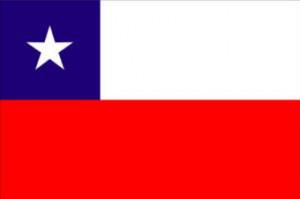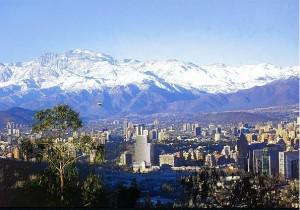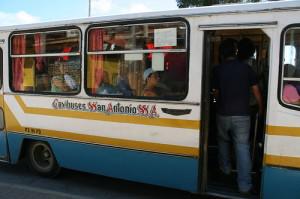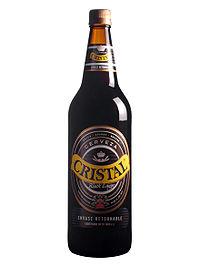So you’re just starting to get the hang of the vos, all the weird “shhh”-ing, and the crazy lunfardo of the city of Buenos Aires. Your next destination on the South American Sabbatical Tour 2011? Chile. You think, If I can speak Spanish in Argentina, I’ll have no problem whatsoever speaking Spanish anywhere else. Right? Wrong. The beauty of Spanish is the diversity of the language, depending on what city, province, country, etc. you are in. So, to get you prepared for your future trip to Chile, here are some of the basics you need to know.

Si po weón, cachai?
During my semester abroad in Santiago, Chile, me and my gringo friends used to joke that all you really needed to use in a sentence was po, weón, and cachai, and Chileans would think you spoke Spanish fluently. These three words are some of the most commonly used words in Chilean Spanish, and it’s nearly impossible to speak a sentence without using at least one of them. So what do they mean?

Po
Po is short for the Spanish word pues, which literally means “well,” but Chileans use it at the end of a word to add emphasis. Or just because they darn well feel like it. Si po and no po are the most commonly ‘po’d’ words, and mean yes and no, but with a little extra onda. Ya po is also commonly used, and depending on the tone, can either mean “ok,” or “c’mon”, “hurry up,” “stop it, and well, much more. Ya po is essentially the porteño equivalent of dale.
Weón
Weón actually comes from the word huevón (literally meaning big balls – hey, I never claimed Chileans were polite), but since Chileans speak so crazy and drop vowels and consonants like it’s hot, they instead pronounce huevón as “weón.” Weón, depending on the tone and context, could be used as a swear word to insult someone you don’t get along with, but most youth use it to mean dude. Did I really just use the word youth in a sentence? Man I feel old. But I digress. Weón, on average, gets dropped in a sentence about every 3 words.*
Porteño Equivalent: Boludo
*This is scientifically proven.**
**It’s really not scientifically proven. You shouldn’t believe anything I say.
Cachai
In Chilean Spanish, as in porteño Spanish, there is also the voseo, but it is different from the rioplatense voseo. In spoken voseo in Chile, Chileans still maintain the “tú” article, but will change the conjugation in -AR verbs to end in -ai instead of the standard -as that you will find in the tú conjugation. Verbs that end in -ER and -IR in the spoken vos form will also change from the tú form tienes to the vos form tení, vienes to vení, eres to erí, etc. The verb cachar comes from the English word “to catch,” which in Chilean Spanish means “to get/understand.” It is also used in a conversational manner to mean, “you know?” Ex: Ya no quiero estar contigo weón, cachai?
Porteño Equivalent: Entendés, me entendés, viste
Other Important Chilenisimos to Know
Bacán, choro: Cool
Porteño Equivalent: Copado, bárbaro, genial
Oye: Hey
Porteño Equivalent: Che
Micro: Bus
Porteño Equivalent: Colectivo, bondi

Metro: Subway
Porteño Equivalent: Subte (short for subterráneo)
Tipo, gallo: Dude (used in the 3rd person)
Ej: Ese tipo que estaba al lado de mí en la micro ayer… (That guy that was next to me yesterday on the bus…)
Porteño Equivalent: Tipo, chabón
Caña: Hangover
Porteño Equivalent: Resaca
Al tiro: Right away, immediately
Porteño Equivalent: Al toque
Fome: Boring
Porteño Equivalent: Aburrido
Pololo/a: Boyfriend/girlfriend.
The verb form would be pololear, which means, “to go out (with someone)”
Porteño Equivalent: Novio/a
Weá: Thing
Porteño Equivalent: Cosa
Harto/a: A lot
Ej: ¡Tengo harta tarea hoy! (I have so much homework today!)
Porteño Equivalent: Mucho, un montón
Cuico/a: Rich and/or snobby person
Porteño Equivalent: Cheto/a
Pega: Job, work
Ej: Estoy en la pega. (I’m at work).
Porteño Equivalent: Laburo
Pescarle a alguién: To pay attention to someone
Ej: ¡No me pescai, weón! (You’re not paying attention to me dude!)
Porteño Equivalent: Darle bola
Chela: Beer
Porteño Equivalent: Cerveza, birra

Pucha: Shucks
Porteño Equivalent: I actually cannot think of one! Any Expanish Spanish School professors want to help me out on this one? 
Qué lata: What a bummer, what a drag
Porteño Equivalent: Qué bajón, qué macana
Luca: One thousand Chilean pesos (about US$2).
Porteño Equivalent: One thousand Argentine pesos (about US$235, calculations courtesy of Dolarhoy.com. Thanks, Argentine inflation).
Guagua: Baby
Porteño Equivalent: Bebé, nene/a
Guata: Stomach, belly, gut
Porteño Equivalent: Panza
That’s just a basic guide, but there is much more Chilean slang to learn! I challenge you to find more chilenismos during your travels and to report back to me when you come back to Expanish

For a FANTASTIC beginner’s guide to chilenismos, check out How to Survive in the Chilean Jungle.

